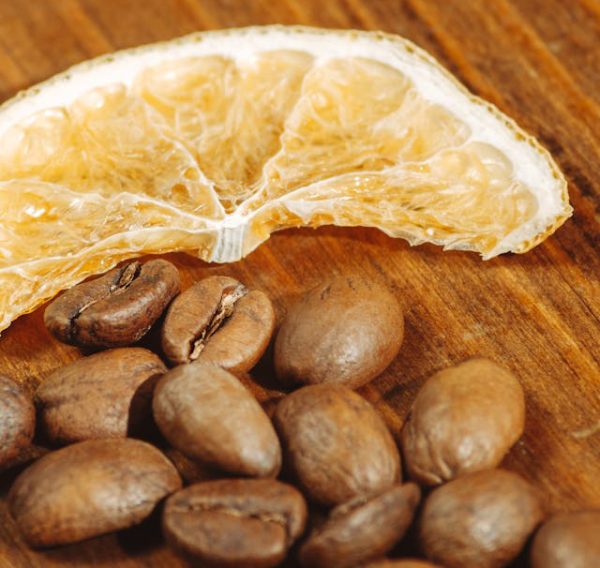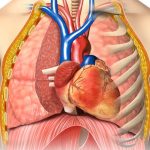Acid reflux, also known as gastro-esophageal reflux, is where the stomach contents such as food and acidic digestive juices escape upwards into the esophagus. This can irritate the esophagus and cause heartburn and other symptoms such as regurgitation, and sour taste, and coughing.
A long-term study recently revealed the number of people who experience acid reflux at least once a week has gone up by nearly 50% in the last 10 years, with women appearing to be more susceptible to the condition than men.
Acid reflux affects much of the population, with 60 percent of Americans having experienced some type of gastroesophageal reflux disease, or GERD, within the last year, and as many as 30 percent experiencing weekly symptoms. GERD is the most severe and recurrent form of acid reflux.
Most acid reflux is easily controlled with diet and lifestyle changes. Losing weight, quitting smoking, reducing salt intake, increasing dietary fiber, slowing down at mealtimes and chewing food more thoroughly, avoiding foods which may commonly act as triggers to reflux, and exercise are among the best non-medication ways to help relieve yourself of acid reflux.
A major concern among healthcare providers is the chronic, over-use of medications by a large percentage of the population to treat the symptoms of acid reflux. Many of these medications, known as proton pump inhibitors, were originally developed as prescription medications and only intended to be taken for short periods of time typically around 6 weeks. These medications work very well to reduce the acid produced by the stomach. However, stomach acid is required to extract certain essential minerals from the foods we eat and long-term deficiencies of these minerals can lead to poor bone density, joint and muscle discomfort, and mood irregularities.
In place of the medications and the diet/lifestyle changes mentioned above, I recommend four natural strategies to my patients to help them safely combat acid reflux.
Eliminate Triggers and Add Bitter Foods

Common foods which can acts as triggers to acid reflux include coffee, alcohol, spicy peppers, citrus fruits, tomatoes, onions, mint, and high fat meals.
Many of us are lacking in the consumption of bitter foods. One great benefit of certain foods considered to be bitter is their ability to help eliminate acid reflux. Bitter foods can improve the efficiency of gastric emptying and reduce the symptoms of acid reflux.
A great natural way to help your stomach better digest food is to consume bitter foods like bitter green salads, Brassica vegetables, endive, cranberries, arugula, radishes, and other foods high in bitterness.
Melatonin

Studies published as early as 2007 have revealed that melatonin, a hormone produced by a gland in the brain that regulates the wake/sleep cycle and other daily biorhythms, may have potential as a new treatment option for those suffering from acid reflux.
The great news about the effectiveness of melatonin in treating acid reflux, is that it is naturally occurring in the body, so no foreign substances are introduced to the body.
Melatonin as a treatment for acid reflux was published in March 2007 in the Journal of Clinical Gastroenterology. Researchers tested the efficacy of melatonin for acid reflux on 60 participants, half of which received a placebo.
Those who received melatonin took 5mg every evening, and after 12 weeks, over half no longer felt symptoms of acid reflux.
Melatonin is widely available over-the-counter at any pharmacy or supermarket in the US and is non-habit forming. In addition, melatonin is much cheaper than prescription medication, and carries the added benefit of helping users fall asleep at bedtime.
Like any other treatment, melatonin won’t help everyone with their acid reflux. But at such a reasonable price, lack of harmful side-effects, and with the added benefit of better sleep – also linked to improved gastric function- melatonin is definitely worth a try.
Heel Drops

Another interesting recommendation for relieving acid reflux is what is known as heel drops.
A heel drop is a method most often used by physical medicine practitioners to treat hiatal hernias, a condition which can cause many cases of acid reflux. The heel drop is also effective for treating milder acid reflux.
The method is simple:
- Drink approximately 8 ounces of slightly warm water immediately after getting out of bed in the morning.
- While standing, raise both arms to your side at 90 degrees, like a capital T, then fold your arms in at the elbows to touch your chest with your hands.
- Stand up as high as you can on your toes.
- Drop down on your heels.
- Repeat 10 times.
After your 10th drop, keep your arms raised and pant in short, rapid breaths for 15 seconds.
The heel drop works by helping to align the stomach and diaphragm, allowing your esophagus to get some relief. Be sure to repeat the heel drop for acid reflux until symptoms subside.
Introduce herbs which help to coat the linings of the esophagus and stomach.

Many natural substances and botanical agents have been used for centuries to help protect the inner linings of the esophagus and stomach against the potentially damaging effects of stomach acid. The most widely available include sodium alginate (a seaweed extract), slippery elm bark, marshmallow root, deglycyrrhizinated licorice root extract, and Indian barberry. Ideally, a combination of these agents should be taken about 20-30 minutes prior to each meal.
Using these four strategies along with the diet/lifestyle changes mentioned above can go a long way in improving your symptoms of acids reflux without the potential negative long term consequences of taking proton pump inhibitors.










